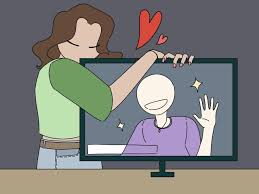Parasocial Relationships
Parasocial relationships often develop when audiences form emotional bonds with media personalities, despite having no real-life interaction with them.
It’s normal to have a strong connection to someone we’ve never met in today’s digital environment. Many of us develop close emotional ties with our favourite influencers, celebrities, or even imaginary characters. This type of one-sided connection, in which one person devotes time, interest, and emotional energy while the other party is totally oblivious of them, is known as a parasocial relationship.
What Is a Parasocial Relationship?
The term was first introduced in the 1950s by psychologists Donald Horton and Richard Wohl. They used it to describe the illusion of friendship that audiences felt with TV personalities. Today, the concept has expanded to include YouTubers, streamers, TikTok creators, and even podcast hosts.
Unlike traditional relationships, parasocial ones are one-directional. For example, you may know all about your favorite actor’s personal life, but they don’t know you exist. Despite this, the connection can feel surprisingly real and intimate.
Why Do Parasocial Relationships Happen?
There are several reasons why people form these kinds of attachments:
- Accessibility of Media – Social media makes celebrities and influencers feel more approachable. Their posts, livestreams, and behind-the-scenes content create an illusion of closeness.
- Emotional Fulfillment – Parasocial relationships can provide comfort, especially for those feeling lonely, isolated, or seeking emotional support.
- Consistency and Familiarity – Seeing a favorite creator or character regularly can mimic the feeling of spending time with a friend.
- Human Nature – We are wired to seek connection, and our brains sometimes blur the lines between real and imagined relationships.
The Positive Side of Parasocial Relationships
Not all parasocial relationships are harmful. In fact, they can have several benefits:
- Inspiration and Motivation – A role model can encourage personal growth and positive habits.
- Comfort and Companionship – For people experiencing loneliness, these relationships can provide emotional relief.
- Community Building – Fans often bond with one another through shared admiration of the same public figure.
The Risks of Parasocial Relationships
However, there are downsides when the relationship becomes unbalanced:
- Unrealistic Expectations – Believing you “know” a public figure can lead to disappointment when their real-life choices don’t match your imagined version of them.
- Neglect of Real Relationships – Spending too much time in parasocial connections can prevent investment in actual friendships and family bonds.
- Emotional Dependence – Overreliance on a celebrity or influencer for emotional support may hinder personal growth.
Finding Balance
Parasocial relationships are part of modern life, and most people engage in them to some degree. The key is balance:
- Enjoy your admiration, but set boundaries.
- Recognize the difference between parasocial and real-life interactions.
- Use these relationships as a source of inspiration, but also nurture genuine connections in your daily life.
Parasocial relationships remind us of how powerful human connection can be—even when it’s one-sided. They can be fun, comforting, and inspiring, but maintaining perspective ensures that they enrich rather than replace real-life relationships.
FAQs on Parasocial Relationships
1. What is an example of a parasocial relationship?
An example is when someone feels emotionally close to a celebrity, influencer, or fictional character—like believing a YouTuber is a “friend” even though they’ve never met.
2. Are parasocial relationships unhealthy?
Not always. They can be comforting and inspiring, but they may become unhealthy if they replace real-life relationships or create unrealistic expectations.
3. Why do people form parasocial relationships?
People form them because of human nature, loneliness, accessibility of media, and the illusion of intimacy created by regular exposure to public figures.
4. Can parasocial relationships affect real-life friendships?
Yes. If someone invests too much time and emotional energy into a parasocial relationship, it may cause them to neglect real-life relationships.
5. Are parasocial relationships more common today?
Absolutely. With social media, streaming, and constant access to celebrities and influencers, parasocial relationships are more widespread than ever.
6. Can parasocial relationships ever be beneficial?
Yes. They can provide motivation, comfort, and even a sense of belonging within fan communities.
7. How can I manage a parasocial relationship in a healthy way?
Enjoy the connection, but set boundaries, remind yourself that it’s one-sided, and make time to nurture genuine friendships and family ties.


Leave a Reply